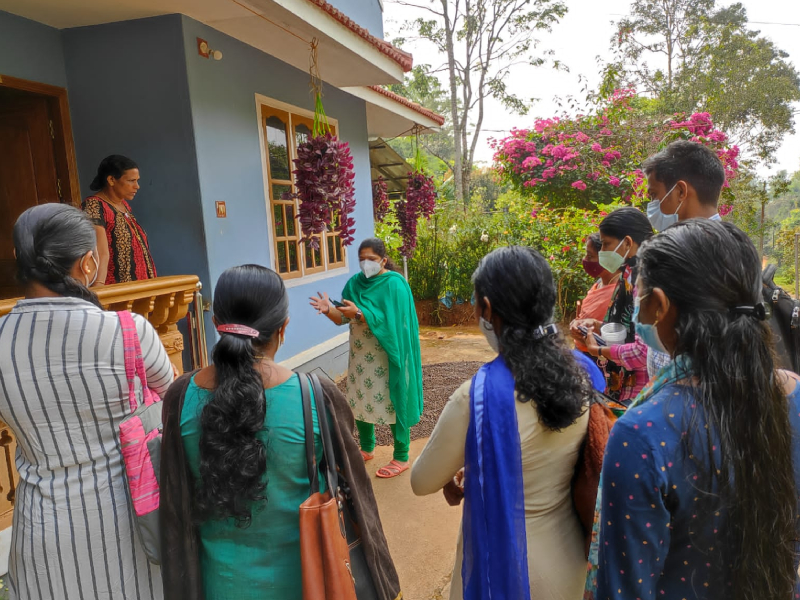Amrita Vishwa Vidyapeetham’s Centre for Women’s Empowerment and Gender Equality, in partnership with Tel Aviv University, Israel, led a pioneering initiative titled Women in Sustaining the Environment (WISE) to address the urgent challenges of drinking water safety in resource-poor communities. This project directly contributes to SDG 6 and SDG 5 by integrating technology, participatory research, and women’s leadership in water governance. Focusing on India and Tanzania, the project mobilised local women as Water Ambassadors, trained them through the Water Quality Monitoring-AmriTAU Protocol, and equipped them with mobile apps and low-cost sensors to monitor household-level water quality. This initiative filled critical data gaps by generating real-time, geo-tagged, community-owned water quality data, shifting the paradigm from centralised lab-based testing to grassroots monitoring.
Key Highlights of the Project:
- Training 27 Rural Women from India and Tanzania as Water Ambassadors in digital tools, field testing, and hygiene education.
- Development of the WISE App & Dashboard for live data collection, feedback, and decision-making.
- Water Quality Profiling using participatory rural appraisal tools and laboratory testing.
- Monthly Monitoring Campaigns across ~2500 households with tailored recommendations.
- Families adopted safer storage practices and became more aware of water quality
- Collaboration with local panchayats and health workers to address contamination issues.
- Distribution of clean water storage containers to all community homes.
- Promoted local leadership, ownership, and sustainable water use.
This community-centric, tech-enabled approach showcases how gender-transformative water interventions can not only enhance access to clean drinking water but also serve as a platform for women’s empowerment, data democratisation, and sustainable development.
Publications
- Ramesh, R., Frank, E., Padmavilochanan, A., Barda, Y., Eldar, I., Wolf, H., … & Fishman, R. (2024). Reliable Water Quality Monitoring by Women in Low-Resource Communities. ACS ES&T Water, 4(9), 3832-3841.
- Ajith, V., Fishman, R., Yosef, E., Edris, S., Ramesh, R., Suresh, R. A., … & Mamane, H. (2023). An integrated methodology for assessment of drinking-water quality in low-income settings. Environmental Development, 46, 100862.
- Ramesh, R., Sithara, G. S., Gireesh, G. S., Nair, R. R., Ajay, A., Von Lieries, J. S., & Bhavani, R. R. (2024). Training of Rural Women to Monitor the Water Quality at the Point of Use to Increase WASH Empowerment in Rural India. IEEE GHTC, 332–339.
- Ramesh, R., Mohan, A., N. N., von Lieres, J. S., & Rao, B. R. (2023). Exploring the Role of Women in Technology-Driven Water Quality Monitoring Using a Participatory Approach. IEEE GHTC.
- Ramesh, R., N. N., Mohan, A., von Lieres, J. S., & Rao, B. R. (2023). Enablers of Rural Women’s Adoption of Water Quality Monitoring Technologies for Ensuring Clean and Safe Drinking Water. IEEE GHTC.
- Ramesh, R., Sithara, G. S., Nair, R. R., Gireesh, G. S., Ajay, A., von Lieres, J. S., & Bhavani, R. R. (2024). Enablers and Barriers to Improved Drinking Water Sources and Safe Water Practices in Rural India. IEEE GHTC.
